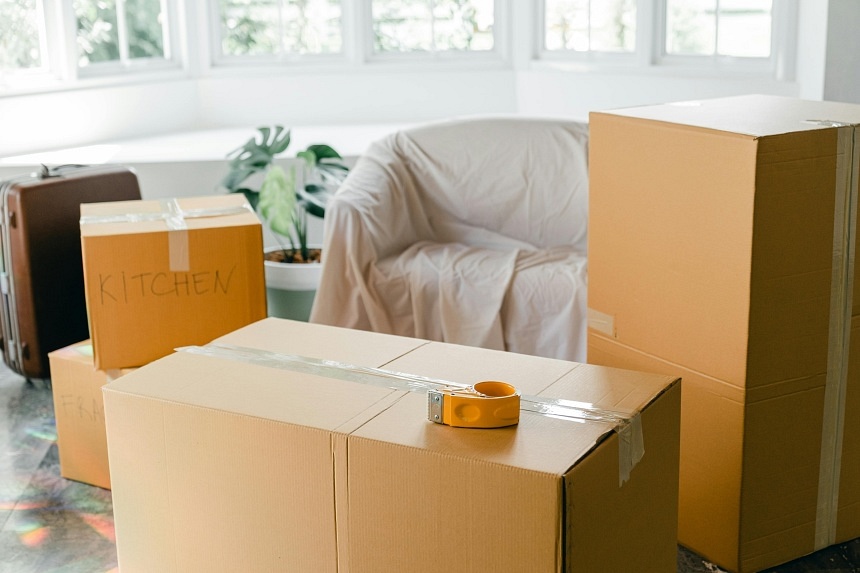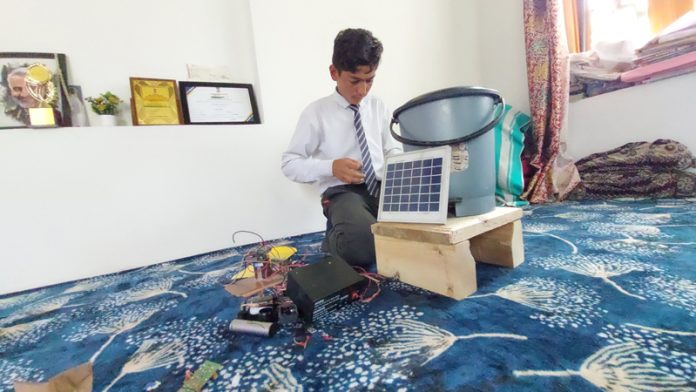
I return home after a long day of work at the hospital. “Dinner’s ready,” mum says as she breezes by into the kitchen. Dad sits in a corner watching animal videos on YouTube at full volume.
I go into my room and change out of my scrubs. As per mum’s instructions, these go into a separate pile for de-germing with Dettol before joining the rest of the family’s laundry. “You forgot to switch off the lights when you went out today,” my mum remarks as she picks out chilli padi with her chopsticks.

“And remember what I told you about the charging wire? Hook it over the armrest of the couch – don’t just leave it dangling on the floor like that.” “Yes, mum,” I sigh. After doing the dishes, I go into my room and try to meditate.
The screeching of macaws from the living room reminds me of my earthly existence. As much as I love my parents, there are times at home when I have to involuntarily shut my eyes for a moment and breathe. Living with your parents as a grown adult is difficult – ask any young person and they would agree.
As we shed our skins from our plump pubescent days and hurtle towards an age of aspirational independence and solidifying personhood, it is only natural that we demand greater autonomy over our daily routines, living preferences and lifestyles. In many countries, translocation is part and parcel of young adulthood. People uproot themselves from their home towns to attend university in big cities and frequently shift between states in search of better jobs or opportunities.
Singapore is unique as a society on the moving-out front, with 97 per cent of unmarried individuals between the ages of 15 and 34 residing with their parents as at 2013, a statistic unheard of in other countries. The reasons for this are multifaceted. In part, it stems from a Confucius-inspired, Asian-dominated model of filial piety.
In part, it stems from exorbitant rental prices and inflated costs of living. More often than not, we blame our inertia towards moving out of our parents’ homes on our country’s distinctive size, or rather, the lack of it. Rationally speaking, it simply makes no economic or practical sense to move out.
Consequently, moving out of your parents’ place becomes the exception, not the norm, especially if you are young, single and not yet financially established. However, there is increasing interest in the local rental market and an uptick of singles wanting to move out and live alone, according to insights from the Urban Redevelopment Authority’s long-term plan review engagement sessions. Despite steep rental prices, the number of single Singaporean residents under 35 living independently more than doubled from 2015 to 2020.
In a survey by PropertyGuru, seven in 10 respondents between the ages of 22 and 39 considered moving out of their parents’ home, or saving up to eventually buy their own place. Living at home with your parents comes with its undeniable upsides. Food appears on the dinner table.
The dishes get washed. The laundry gets done. You live rent-free.
But what you don’t pay for in money, you pay for in intangibles. When you live under your parents’ roof, you abide by their rules: shoes arranged neatly on the rack, dinner at 6 o’clock, and immaculate table manners. No indecent language, no spaghetti tops and short shorts, no having friends over till late.
I still have friends at 25, and even 30, with strict curfews. It makes it hard to say no to communal activities – being recruited for grocery runs, sitting down for meals together at the dining table, listening to your mum’s spiel on the dearth of vegetable variety at FairPrice. However, while pitching in for household chores is necessary, and cherishing time together as a family is imperative, young people nowadays desire a sense of self that is ideologically separate from their childhood homes.
Moving out and acquiring a place of your own – be it a room or an entire apartment – does more than just define the boundaries of personal space. It fosters a sense of belonging, affirms one’s sense of agency, and allows greater room for reflection and self-development if done right. To possess a place is to own an identity.
Besides physical space, living on your own affords you the freedom to do life on your own terms. What are you like when left alone to your own devices? What routines do you consciously seek out? What habits do you lapse into? “Home to me has no exact geography but is instead an ever-shifting amalgamation of places and faces,” says Christy, who grew up in Singapore, uprooted to California for high school and college, and is now working for Google’s DeepMind in London. “I don’t think I’ll experience the comfort of home in the conventional way, but living on my own allows me the liminal space to find myself,” she reflects to me on her time abroad.
All of a sudden, you take full control of your life’s rhythms and momentum – you decide what time you want to go to bed, when to do the laundry and whether to sleep in on the weekend. Oliver, a computer engineer who works in government, has been renting a place since moving back from college abroad. For him, moving out seemed like a natural choice as he “couldn’t imagine moving back in again after spending so much time living alone”.
Paradoxically, moving out may signify a turn of familial relationships, or reparation of previously strained ties. Every visit home now becomes more intentional and requires prior coordination. Roles and relationships are clarified, and the heart grows fonder with distance.
For Oliver, time carved out to spend with his parents now feels more purposeful. When he comes home for dinner each weekend, the family makes it a point to spend the time together meaningfully, enjoying one another’s presence and company. Nevertheless, solitary living comes with its own set of conundrums.
Average prices for rent range from $500 to $2,000 a month for a single room in a shared flat, and $2,200 to $3,200 a month for an entire unit such as a three-room HDB flat, depending on the area and whether it’s a mature estate. The hefty cost “keeps most young, unmarried people at home with their parents”, according to Dr Chua Beng Huat, professor of sociology at the National University of Singapore. If you co-live with other tenants, there may be personality clashes and disagreements.
As with every kind of living arrangement, friction points may involve negotiating the use of common spaces, reconciling standards of basic hygiene and adjusting to one another’s living habits. At the same time, the realities of adulting set in all at once. There’s an unspoken isolation and loneliness that comes with independent living, even for the most introverted of us.
You cook your own meals, do your own chores and pay for the bills on your own. When the light bulb in the bathroom blows, you’re in charge of fixing it. When the toilet paper runs out, you can’t shout at someone else to get it for you.
You fall sick, you take care of yourself. Moving out from home is a major decision, and leaving your childhood nest can feel daunting, especially if you’re moving out for the first time. When I relocated from Singapore to Boston to pursue an internship for my gap year, I similarly felt lost and uncertain.
During the year, I burned granola in the oven. I kept the tomato plants alive on the balcony. When the power tripped in winter and my roommate was away on a ski trip, I shivered in the dark, stumbling around for an hour before I found the fuse box in the basement with my phone’s torchlight.
Yet through the adventures and misadventures, I grew and matured as a person. For some, renting their own place represents a milestone on their journey towards independence. For some, moving out serves as an act of self-care and respite.
All of us desire to inhabit a space of our own for different reasons. Maybe it’s time for us as a society to embrace alternative living situations, and acknowledge that when young people move out, it’s not always personal..














